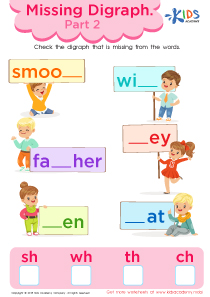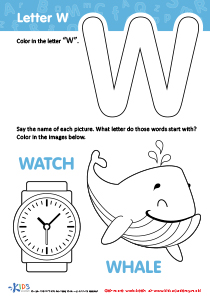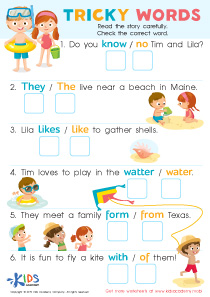Motor skills development Normal Grade 1 ABC Letters Worksheets
3 filtered results
-
From - To
Our "Motor Skills Development Normal Grade 1 ABC Letters Worksheets" are designed to enhance fine motor skills in young learners while helping them master the alphabet. These interactive worksheets provide fun tracing, writing, and coloring activities tailored for first graders. By following guided exercises, students improve their hand-eye coordination, pencil control, and muscle strength, essential for successful writing. The engaging format not only maintains kids' interest but also supports their confidence as they progress. Perfect for classroom use or additional practice at home, these worksheets create a solid foundation for your child's writing journey. Explore now to nurture your child's motor and literacy skills!


Letter H Tracing Page
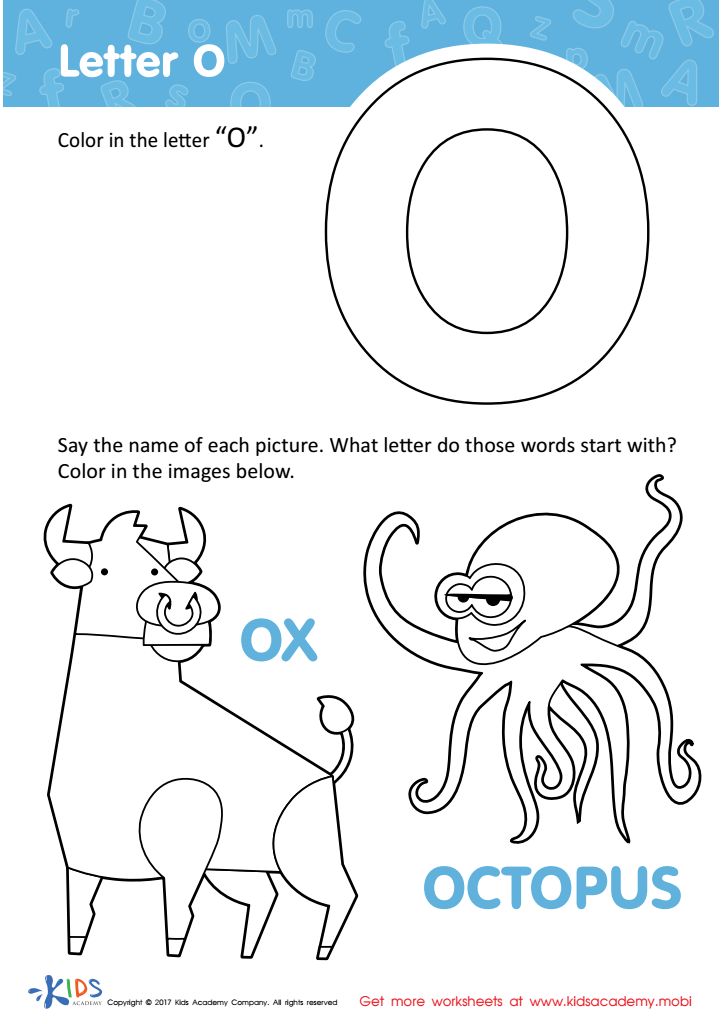

Letter O Coloring Sheet
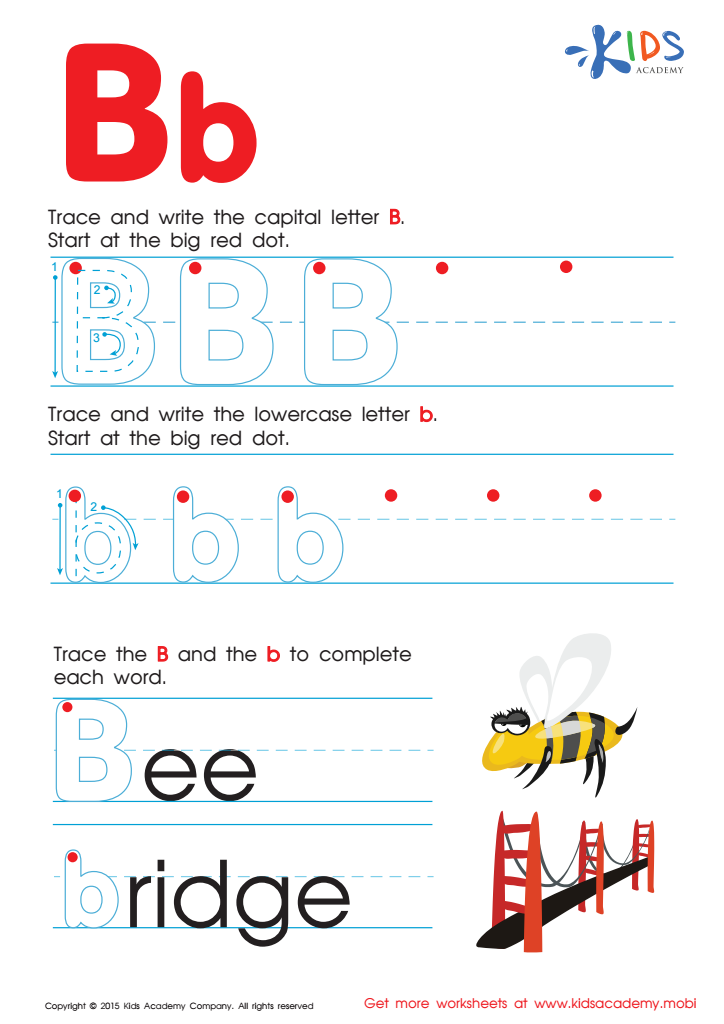

Letter B Tracing Page
Parents and teachers should greatly value motor skill development in Grade 1 students as it plays a critical role in their overall growth and academic success. Motor skills, which include both fine and gross motor abilities, are essential as they enable children to perform everyday activities effectively and independently.
When it comes to learning ABCs and grasping other academic content, fine motor skills are particularly important. These skills involve the coordination of small muscles in movements—usually involving synchronizations of hands and fingers—working in tandem with the eyes (hand-eye coordination). Writing letters of the alphabet requires precise small muscle movements; fine motor dexterity is crucial for holding a pencil correctly, articulating letter shapes, and staying within the lines which affects legibility. Mastering these abilities enhances not only writing skills but also promotes cognitive links to reading and spelling tasks.
Moreover, fine motor development is correlated with other domains of a child's life. It underscores their capability to dress themselves, use eating utensils, and partake in craft or play activities that build confidence and independence. Addressing motor skill development early ensures that students are more likely to succeed academically and enjoy active participation in classroom activities. Ignoring these foundational skills can lead to challenges, frustrating a child and impeding holistic development. Consequently, attentive nurturing of these abilities lays a solid foundation for lifelong learning and daily functioning.
 Assign to My Students
Assign to My Students







